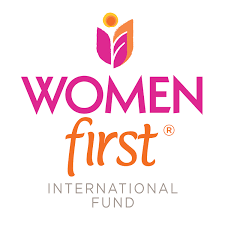About this project
The Women in Recycling Foundation (WORF) proposes the establishment of youth-led smart waste collection centers in coastal communities of Tanzania to address the growing threat of plastic pollution. These centers will be managed by young people aged 18–30 and serve as hubs for recovering plastic waste from beaches, drainage points, and public spaces vulnerable to pollution.
Each center will be integrated with WORF’s SmartCity App — a digital tool designed to collect real-time data on the types and quantities of waste collected, enabling improved traceability, transparency, and decision-making. The centers will also serve as learning points for youth and community members on sustainable waste management practices.
This initiative not only reduces environmental degradation but also creates livelihood opportunities, especially for young women and disadvantaged youth, by engaging them in recycling, awareness campaigns, and climate action activities. The project is practical, youth-driven, and designed to generate measurable impact at the grassroots level.
Goals and Objectives
The goal of this project is to reduce plastic pollution in Tanzania’s coastal communities by establishing smart, youth-led waste collection centers that promote environmental stewardship, data-driven decision-making, and green economic opportunities.
The project will:
1.Establish three smart waste collection hubs led by youth (aged 18–30), equipped with digital tools to track and monitor collected waste.
2.Train 30 youth (60% young women) in waste sorting, digital data entry via the SmartCity App, and plastic upcycling techniques.
3.Recover and divert at least 5 tons of plastic waste from coastal environments.
Increase public awareness through three targeted clean-up campaigns and education sessions on responsible waste disposal.
4.The primary beneficiaries are marginalized young people, particularly young women living in underserved coastal areas vulnerable to plastic pollution and youth unemployment. They were selected due to their limited access to formal employment and their untapped potential as community changemakers. Through this project, beneficiaries will gain hands-on green skills, digital literacy, and access to income-generating opportunities via recycling and local product creation.
Sustainability is built into the project through two main mechanisms:
The SmartCity App allows for continuous monitoring, data collection, and reporting, ensuring long-term visibility and accountability.
Income generated from the sale of sorted or transformed plastic will support ongoing operations and incentivize youth-led maintenance of the hubs.
The project has strong potential for replication and scaling due to its modular, low-cost design and its integration of digital technology. WORF aims to pilot this model in three communities, document lessons learned, and share the model with other youth and local authorities in Tanzania and beyond.
Expected result
This project is designed with clear, measurable outcomes that can be monitored using WORF’s SmartCity App and on-the-ground data collection methods. All results are aligned with the project’s goal of reducing plastic pollution while empowering youth in coastal communities.
1. Three Youth-Led Smart Waste Collection Centers Established (by Month 2)
Specific: To Set up three functional waste collection hubs in different coastal communities.
Measurable: Centers equipped with bins, weighing scales, signage, and digital tablets with the SmartCity App installed.
Achievable: WORF has prior experience establishing small-scale hubs and access to local networks.
Relevant: Addresses poor waste infrastructure and youth unemployment.
Time-Bound: Completed within the first two months of project launch.
2. 30 Youth Trained and Engaged in Waste Management and Digital Data Collection (by Month 3)
Specific: Train 30 young people (at least 60% women) in waste sorting, app usage, and basic recycling/upcycling.
Measurable: Pre/post training assessments and participation logs.
Achievable: WORF has training modules and facilitators in place.
Relevant: Builds youth capacity and ownership.
Time-Bound: Training completed within the first quarter of implementation.
3. At Least 5 Tons of Plastic Waste Recovered and Recorded (by Month 6)
Specific: Collect, weigh, sort, and record plastic waste at each hub.
Measurable: Quantities tracked in real-time via the SmartCity App.
Achievable: Based on WORF’s historical data from similar clean-up activities.
Relevant: Directly tackles plastic pollution in vulnerable coastal areas.
Time-Bound: Goal to be reached within six months.
4. Three Community Awareness Campaigns Implemented (by Month 6)
Specific:To Organize one campaign per hub including clean-up events, school visits, and public education.
Measurable: Number of campaigns, participants, and distributed materials recorded.
Achievable: WORF has a network of volunteers and prior outreach experience.
Relevant: To Promote behavioral change around waste management.
Time-Bound: Completed by mid-project.
5. Waste Data Digitally Reported for Decision-Making and Replication (Monthly Reports)
Specific: Use SmartCity App to generate monthly waste recovery and participation data.
Measurable: Monthly digital reports exported and reviewed.
Achievable: Digital tool already tested and deployed by WORF.
Relevant: Ensures transparency, learning, and scaling.
Time-Bound: Monthly throughout the 6-month project period.
6. At Least 10 Youth Generating Income from Plastic Recovery and Reuse (by Month 6)
Specific: To facilitate recycling or transformation of plastic into saleable items.
Measurable: Number of youth earning income and product units sold.
Achievable: WORF’s existing recycling system will be utilized.
Relevant: Supports long-term project sustainability and economic inclusion.
Time-Bound: Income generation to begin by Month 4 and tracked monthly.
Partners

About me / organisation
The Women In Recycling Foundation (WORF)
The project will be led by Hellena Sailas, a 29-year-old Tanzanian social entrepreneur and environmental advocate. She is the founder and executive director of the Women in Recycling Foundation (WORF), an organization dedicated to empowering youth and women through innovative waste management and circular economy solutions. Hellena brings over six years of experience in implementing community-based recycling projects and has led multiple initiatives focused on plastic recovery, eco-brick production, and youth climate action in Tanzania’s coastal regions. She also played a key role in developing the SmartCity App, a digital platform designed to enhance waste data tracking, which will be used in this project. As project lead, Hellena will be responsible for overall coordination, supervision of implementation, stakeholder engagement, and monitoring of project outcomes. Her leadership is grounded in a deep understanding of grassroots environmental issues and a passion for youth-led, tech-enabled solutions.
Website Website